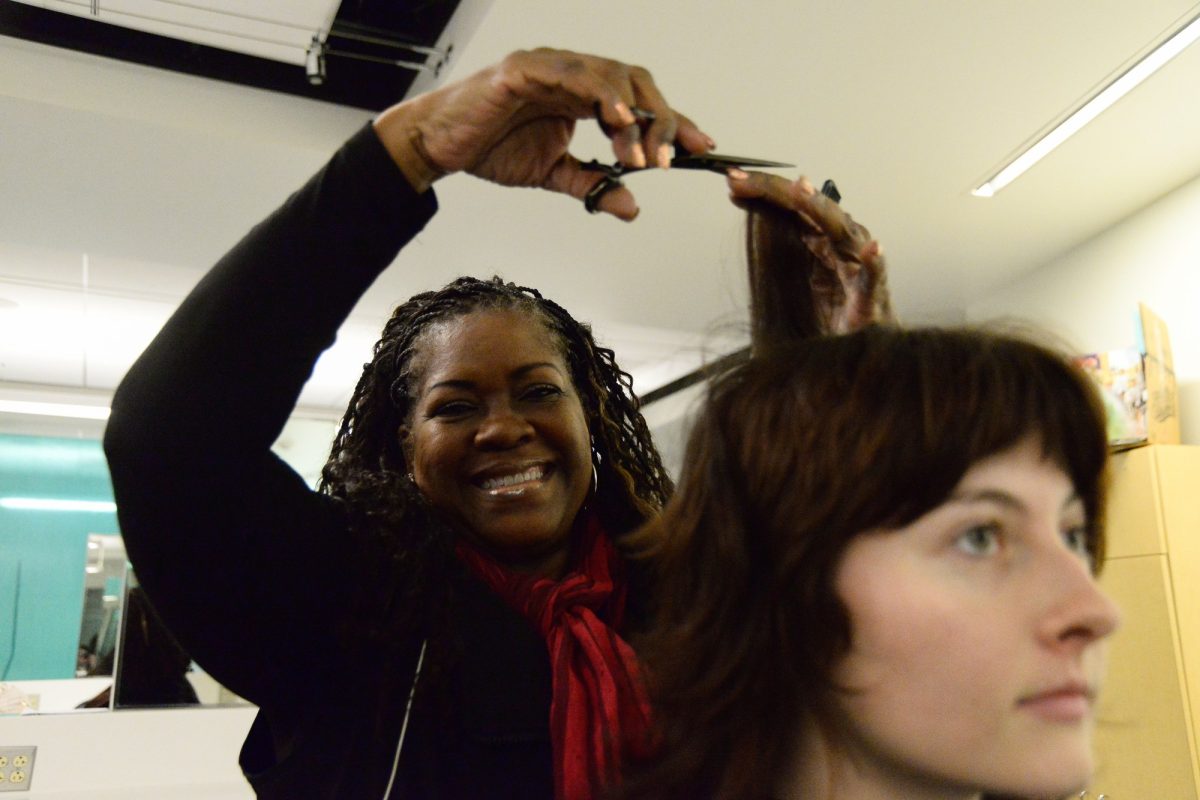When you join the Army, you become part of the
Army of One.
At least, that is what you are led to believe. This motto attempts to target millions of male and female adults from ages 17 to 34.
It’s especially attractive to high school graduates who want to develop their physical and mental strengths.
The U.S. Army not only provides job experiences, but also teaches self-discipline, leadership and teamwork skills that help maximize one’s potential.
“Ultimately, the educational benefits play a critical part in joining the Army,” Sgt. Patrick W. Luley said.
“But a higher sense of duty and responsibility toward their country overweighs everything,” he said.
The two main reasons recruiting is at an all-time high are: problems in the Middle East where people feel they have a patriotic duty to help their country during a time of need.
And two, the Army offers a college fund of 100 percent tuition assistance to all who join the service.
Joining the Army can be quite a challenge. There are a variety of tests that a person must go through.
First, a person who has enlisted has to take the Armed Services Vocational Aptitude Battery (ASVAP) test, which lasts three hours.
After that, he or she has to go through a complete physical exam and then a security interview check.
“A lot of people think it is really easy to join the service,” Luley said. “But I can pretty much guarantee that you have to be a high quality caliber of individual in order to actually join the service.”
However, while the Army provides many opportunities, it is not meant for everyone. It certainly was not meant for Maurice Jones, history major.
Jones signed a two-year commitment upon graduating from Leuzinger High School.
One of the main reasons for him joining was because the Army recruiter told him there were many job opportunities and other benefits.
“They were so quick to tell me that they have more than two hundred jobs that I could be trained for,” Jones said.
“But only maybe three of those really apply to the reality of the outside world,” he said.
Jobs that the Army offers include being a police officer, a fire fighter, or a security guard.
But none of those choices appealed to Jones, who aspires to become a teacher in the future.
“A lot of things that my recruiter told me turned out to be false,” Jones said. “I quickly realized that it just wasn’t the life for me.”
Another problem is being trained in the boot camp. Irene Johnson, who enlisted in the U.S. Marines after she was inspired by her Reserve Officer Training Corps (ROTC) teacher Master Sgt. Thomas Gilbert, said that her experience in boot camp was “hell.”
“I remember I slept through most of the ride to the boot camp, but once we arrived and when the bus stopped, we heard someone screaming and demanding us to get off the bus,” Johnson said.
“‘Get out! Get out!’ was the only welcoming voice that awaited us when we arrived at Parris Island,” she said.
Johnson said there are no real fond memories of boot camp for her and most of the experience was horrible.
“They put our body through a physical limit and mental torture,” she said, “not to mention all the belittling we had to endure.”
“It was a rude awakening,” Johnson said.
“I volunteered and I wondered why they had to treat me like this,” she said.
Jones said he was not too fond of the working conditions the Army offered, which made it impossible for him to attend college.
“The Army does not discourage anyone from attending college and the benefits are certainly there, but there is just no time,” Jones said.
Luley said he disagreed with Jones and that he believes the Army is just like any other institution, where students make the most of their opportunities.
“Absolutely, it’s very tiring to have a full-time job and go to college at the same time,” Luley said. “But it is not unachievable; it’s a matter of self-discipline at that point.”
Jones said he understands that maybe he wasn’t ready for the Army at the age of 18.
He said he would advise anyone looking to join the military service to think twice.
“For starters and fresh high school graduates, they should not believe in everything their recruiters tell them,” Jones said. “Secondly, anyone who wants to join should get everything in writing. That’s the most important thing.”








